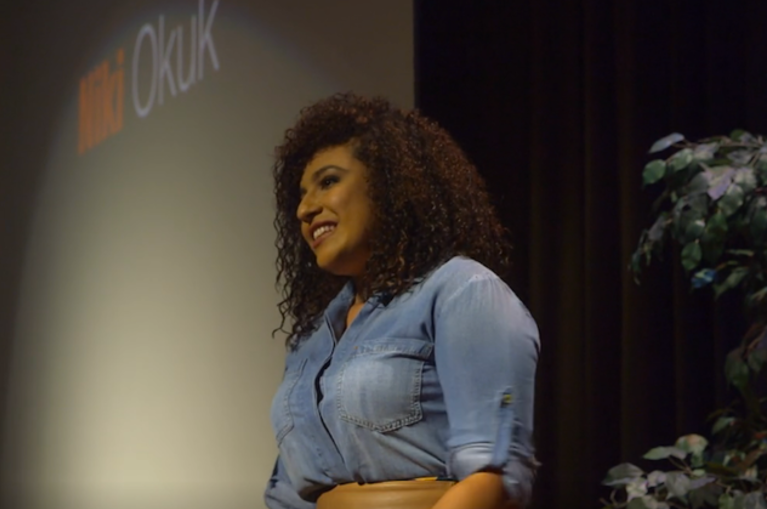In her engrossing TED Talk, business owner Niki Okuk explores three key themes: racism, economic oppression, and privilege, and how they relate to cooperative economics. Okuk, who runs tire recycling company Rco Tires, shares her personal story of starting the business, but puts it in larger, historical context. “So a lot of people ask, ‘How did Rco come to be,'” Okuk says. “And I have to be really honest. I leveraged my white privilege.” She explains how access to jobs, loans, and benefits that were available to her white grandmother would have been denied to her black great grandfather and relatives. She emphasizes the role of history in the racial economic inequalities of today and the power dynamics that perpetuate these inequalities.
Okuk brings up a recent book by Jessica Gordon Nembhard, professor of community justice and social economic development at the City University of New York. In her book, “Collective Courage: A History of African American Cooperative Economic Thought and Practice,” Gordon Nembhard meticulously digs into the countless efforts and the history surrounding cooperative businesses in African-American communities. In an interview with Upstream, Gordon Nembhard says that cooperative economic movements have been a persistent feature of African-American communities throughout history, despite facing violence and harsh economic retribution for their collective organizing.
In the interview, Gordon Nembhard points out that “[W.E.B] Du Bois actually talks about the Underground Railroad being a form of economic cooperation. … The Underground Railroad was a social system, but also an economic system because you had to share resources.”
The Freedom Quilting Bee, is another noteworthy example. In the small town of Alberta, Alabama, African-American women formed a cooperative where they supported each other, earned income collectively, and saved enough to buy land and a factory. Some even made enough to be able to free themselves from sharecropping, the exploitative system of indentured servitude that replaced slavery.
“They did it through cooperative economics because they knew that capitalism was never going to finance black liberation,” Okuk says in her talk. In that same spirit, Okuk and others started the Los Angeles Union Cooperative Initiative to foster and create more worker-owned businesses in Los Angeles. As a sort of incubator and support system for co-ops, the organization gets its inspiration from Mondragon, Spain.
In Mondragon, over 260 worker-owned businesses employ 80,000 people and generate €12 billion in revenue every year, essentially functioning as a co-op commonwealth. This network of interconnected cooperatives comprises of an alternative economic system, which Okuk captures in the closing statement of her talk: “Another world is not only possible, she’s on her way. And on a quiet day, I can hear her breathing.” Watch Okuk’s talk here:
Header image is a screenshot from Okuk’s TED Talk
This article is cross posted with permission from Shareable.net





